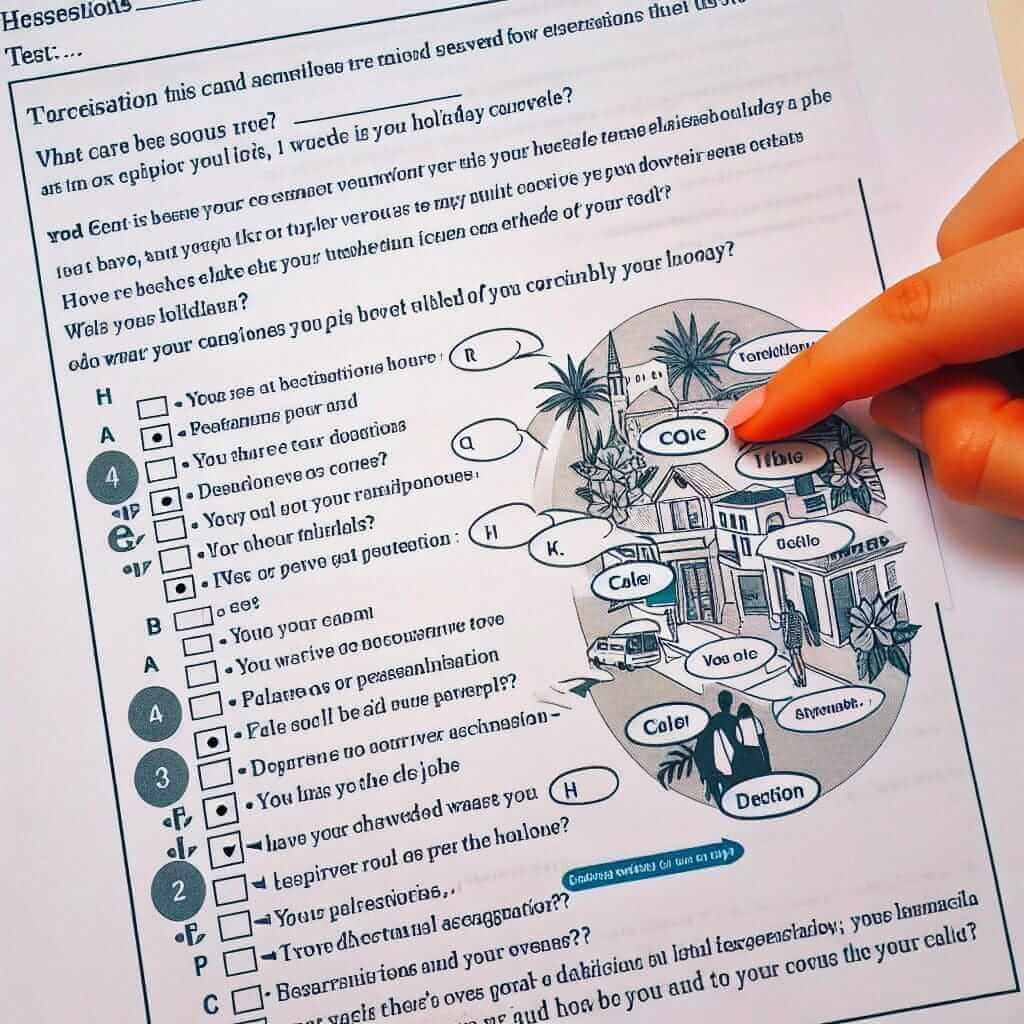The Importance of IELTS Level Testing
As an IELTS instructor with over 20 years of experience, I understand the significance of accurately assessing a student’s English language proficiency. A well-administered IELTS level test is crucial for several reasons:
- Identifying Strengths and Weaknesses: It allows both the instructor and the student to pinpoint specific areas where the student excels and areas that need improvement.
- Creating Targeted Study Plans: The results of a level test provide valuable insights for tailoring study plans to address individual learning needs.
- Tracking Progress: Regular level tests help monitor a student’s progress throughout their IELTS preparation journey, highlighting their achievements and areas that require further attention.
- Building Confidence: By identifying their current level and witnessing improvements over time, students gain confidence in their abilities.
Conducting an Effective IELTS Level Test
An effective level test should assess all four IELTS skills: Listening, Reading, Writing, and Speaking. Here’s a breakdown of how to approach each section:
Listening
- Use Authentic Materials: Select listening materials similar in format and difficulty to the actual IELTS test. This could include recordings of lectures, conversations, or news broadcasts.
- Focus on Different Accents: Expose students to a variety of English accents, as the IELTS test features speakers from different English-speaking countries.
- Vary Question Types: Incorporate a range of question types used in the IELTS Listening test, such as multiple choice, sentence completion, and note-taking.
Reading
- Choose Relevant Texts: Select reading passages from sources similar to those found in the IELTS test, such as academic journals, newspapers, and magazines.
- Assess Comprehension Skills: Ask questions that test different levels of reading comprehension, including skimming, scanning, and identifying the main idea.
- Time the Test: Replicate the time pressure of the actual IELTS exam by setting appropriate time limits for completing the reading tasks.
Writing
- Provide Clear Prompts: Give students clear and concise writing prompts that resemble the tasks in the IELTS Writing test.
- Assess Essential Skills: Evaluate their ability to structure essays logically, present arguments effectively, and use a wide range of vocabulary and grammar accurately.
- Set Realistic Word Counts: Adhere to the word count requirements of the IELTS Writing test to familiarize students with exam conditions.
Speaking
- Simulate the Exam Format: Conduct the speaking test in a one-on-one setting, mirroring the IELTS Speaking test format.
- Use a Variety of Topics: Engage students in conversations on a range of topics commonly found in the IELTS Speaking test, such as hobbies, travel, and current events.
- Assess Fluency and Coherence: Pay attention to the student’s ability to speak fluently, connect ideas logically, and use appropriate pronunciation and intonation.

Example Level Test Questions
Listening:
- Multiple Choice: Listen to a conversation between two people discussing a holiday plan. Choose the correct answer from the options provided.
- Sentence Completion: Listen to a lecture about climate change. Complete the sentences with the missing words.
Reading:
- True/False/Not Given: Read a passage about the history of the internet. Determine if the statements provided are true, false, or not given in the text.
- Matching Headings: Read a text about different types of renewable energy. Match the headings to the correct paragraphs.
Writing:
- Task 1: Describe a graph or chart that illustrates the changes in population growth over a specific period.
- Task 2: Write an essay discussing the advantages and disadvantages of using technology in the classroom.
Speaking:
- Part 1: Answer questions about your hometown, hobbies, and daily routines.
- Part 2: Speak for two minutes on a given topic, such as a memorable event in your life.
- Part 3: Engage in a discussion related to the topic from Part 2.
Tips for Effective Level Testing
- Create a Relaxed Atmosphere: Ensure students feel comfortable and at ease during the test to minimize anxiety and allow them to perform their best.
- Provide Clear Instructions: Explain the test format, time limits, and marking criteria clearly to avoid any confusion.
- Offer Constructive Feedback: After the test, provide students with detailed feedback on their performance, highlighting both strengths and areas for improvement.
Conclusion
Accurately assessing a student’s IELTS level is an essential first step in guiding them towards success in the exam. By implementing the strategies outlined in this guide, instructors can create effective level tests that provide valuable insights into a student’s current proficiency and inform the development of personalized study plans. Remember, the goal is to equip students with the knowledge, skills, and confidence they need to excel in their IELTS journey.